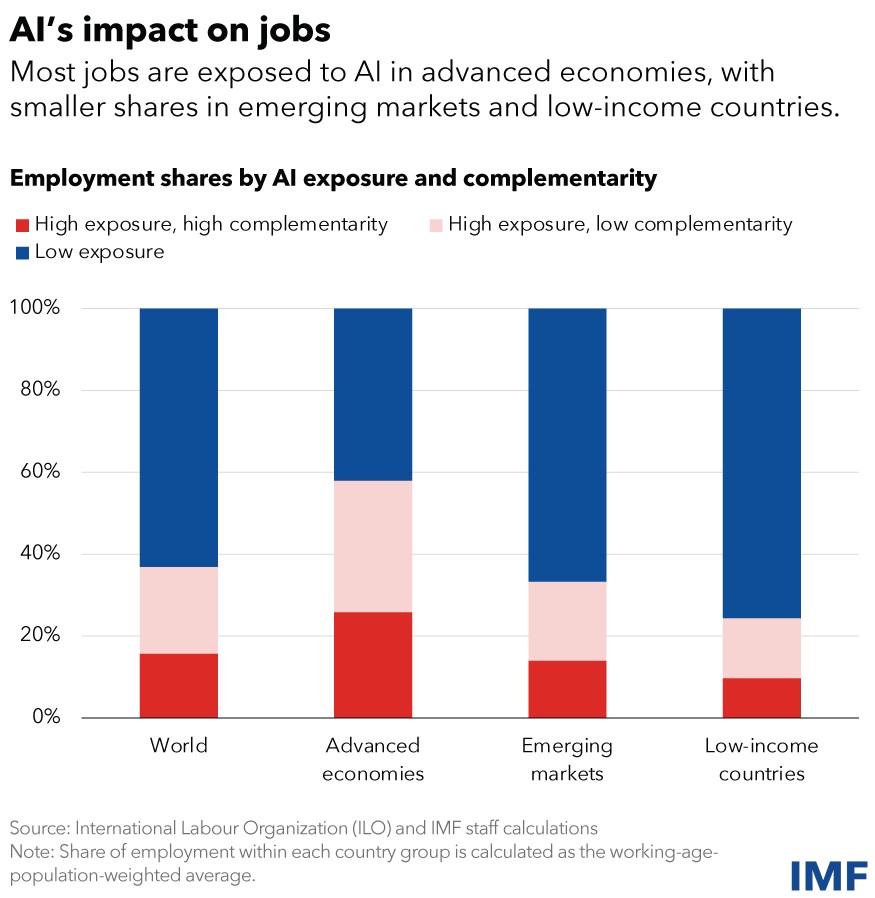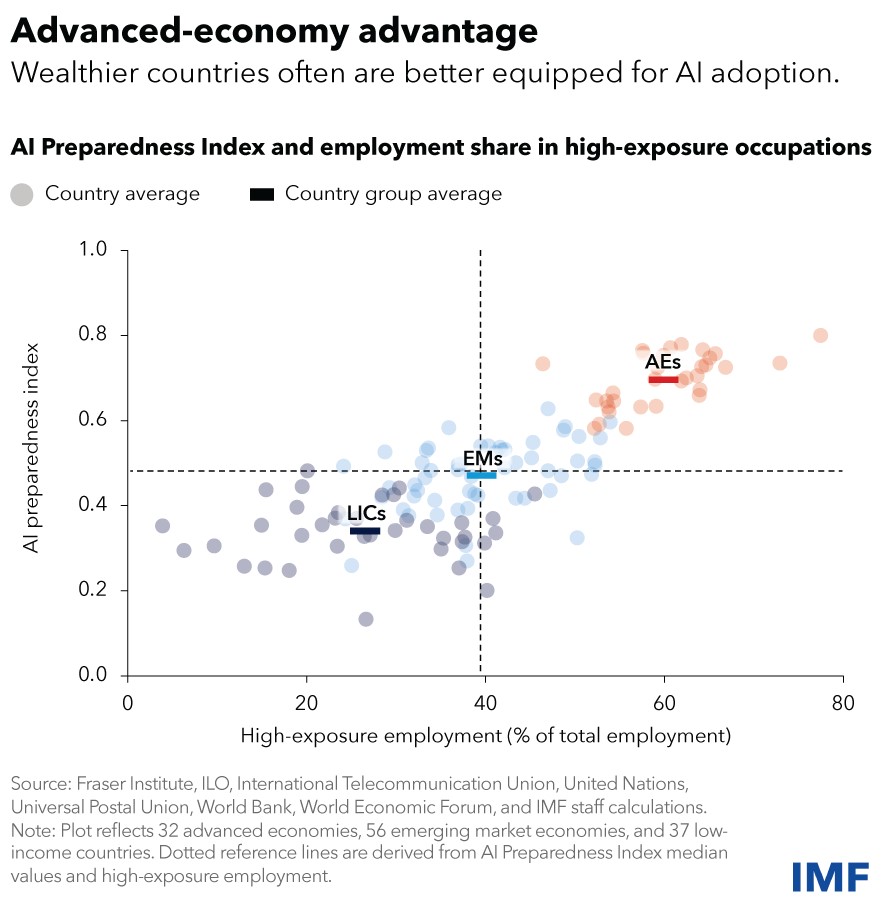IMF: Prepare for AI to disrupt nearly 40% of jobs globally
Artificial Intelligence will affect almost 40% of jobs around the world, replacing some and complementing others, therefore governments must establish safety nets and offer retraining programs to counter the impact of AI, the International Monetary Fund’s chief Kristalina Georgieva said in a commentary on the IMF blog ahead of the three-day 2024 World Economic Forum that kicks off on 16 January in Davos, Switzerland.
The troubling figure derives from an IMF analysis predicting a profound reshape of the global labor market in the immediate future [direct download in PDF].
“In advanced economies, about 60% of jobs may be impacted by AI. Roughly half the exposed jobs may benefit from AI integration, enhancing productivity. For the other half, AI applications may execute key tasks currently performed by humans, which could lower labor demand, leading to lower wages and reduced hiring. In the most extreme cases, some of these jobs may disappear. In emerging markets and low-income countries, by contrast, AI exposure is expected to be 40% and 26%, respectively,” the IMF blog post says.

These findings suggest that emerging markets and developing economies will face fewer immediate disruptions from AI, according to the IMF.
However, in most scenarios, AI will likely worsen overall inequality, a troubling trend that policymakers must proactively address to prevent the technology from further stoking social tensions, Georgieva quoted the findings of the IMF analysis.

More to read:
Humans may not survive Artificial Intelligence, says Israeli scientist
The document also says that college-educated workers are better prepared to move from jobs at risk of displacement to high-complementarity jobs; older workers may be more vulnerable to the AI-driven transformation.
The report also identifies the groups with more resilience to this transformation:
“…college-educated individuals historically moved more easily from jobs now assessed to have high displacement potential to those with high complementarity. In contrast, workers without postsecondary education show reduced mobility. Younger workers who are adaptable and familiar with new technologies may also be better able to leverage the new opportunities. In contrast, older workers may struggle with reemployment, adapting to technology, mobility, and training for new job skills.”






![[video] Kawasaki unveils Corleo, a hydrogen-powered robotic horse with AI management](/news_img/2025/04/11/news2_mediu.jpg)
